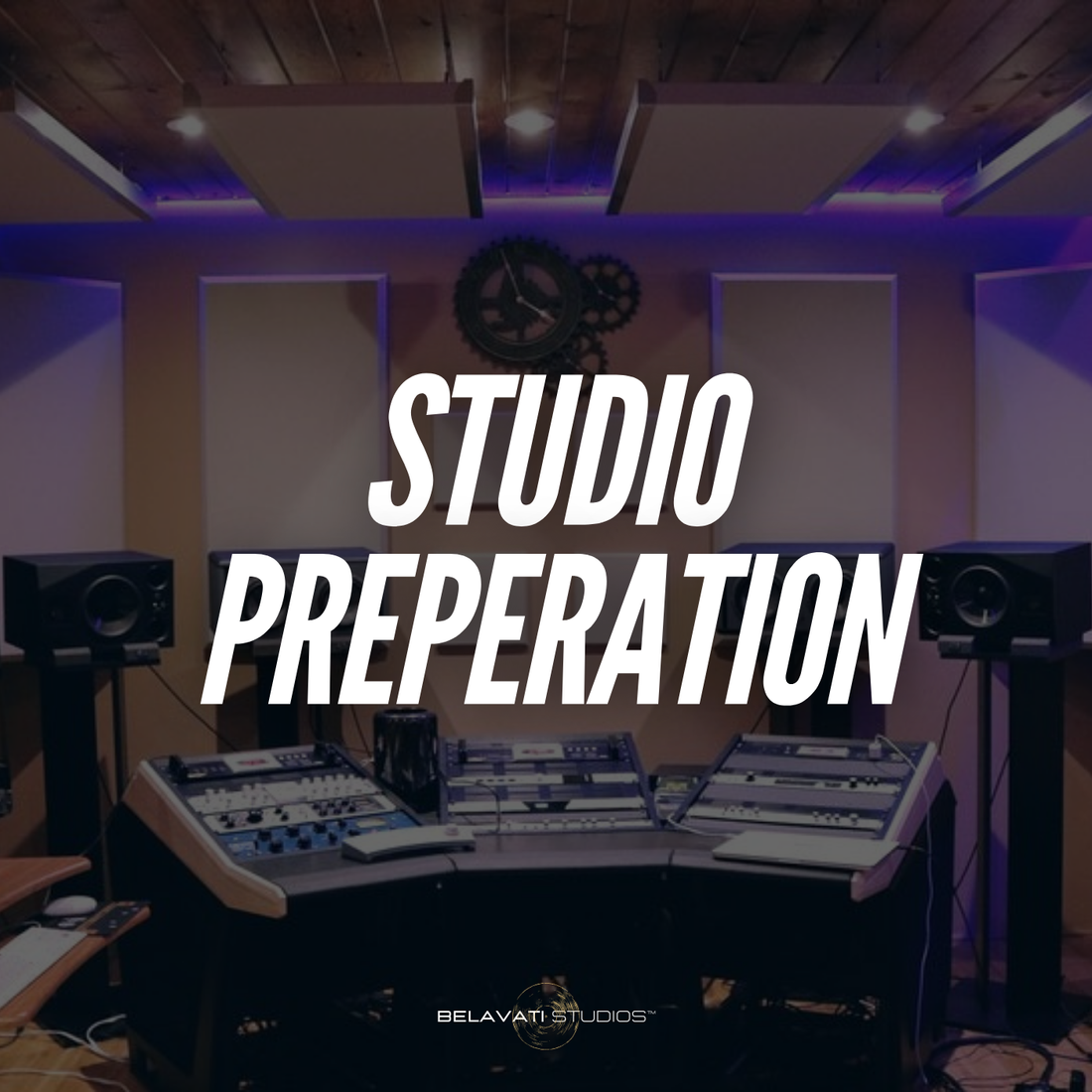When heading to a recording studio, being prepared is essential to making the most of your session and ensure everything goes smoothly. Here are 5 things you should always bring to every recording session:
1. Your Instrument(s), beat(s) and Accessories
If you’re a musician planning to record to an instrumental track, bring your instrumental on an external hard drive or flash drive (unless you’ve arranged to send it via email or have and iPhone and the studio engineer accepts AirDrop files. I would still email it over just in case to make sure your instrumental doesn't reformat itself in the process).
- Be sure to have an MP3 or Wav file ready, many recording studios will not download beats from online browsers.
- Be sure to have rights to the instrumental you are using, this will prevent any future copyright issues.
If you’re planning to play and instrument such as guitar, drums, keyboard, or any other instrument, bring your own gear (unless you’ve arranged to use studio equipment). This includes:
- Guitar, bass, or other instruments you're playing on the track.
- Spare strings, drumsticks, or picks in case of breakage.
- Tuners, pedals, or other effects you regularly use.
- Cables: Always bring backup cables for any instruments or microphones you're using.
Having your personal instrument helps ensure you’re comfortable with your sound, and the studio doesn’t always provide every specific gear you need.
2. A List of Songs/Arrangements
Be sure to bring a written or digital copy of your song arrangements. This could be:
- Lyrics sheets for vocalists or lyricists.
- Chord charts or sheet music for instrumentalists.
- Detailed notes on how you want the arrangement to sound (i.e., tempo, dynamics, specific directions for each part of the song).
This helps keep everyone on the same page and ensures you’re not wasting time figuring things out during the session.
3. Headphones
Good headphones are essential for getting the best sound quality during recording and mixing. Studio headphones tend to be a bit bulky and may not suit everyone, so it’s a good idea to bring your own pair for comfort and optimal sound isolation. Choose headphones that:
- Have good noise isolation.
- Offer clear, balanced sound for listening to mixes and playback.
If you're doing vocal work or need to track instruments while listening to other parts, having your own headphones can save time and help you focus.
4. A Positive Attitude and Preparedness
While this may seem like a odd “item,” bringing the right mindset is crucial for a productive session. Be ready to:
- Be flexible: Things might not go exactly as planned, so being open to adjustments is important.
- Stay motivated: Studio time can be long and demanding, but maintaining a positive, focused attitude helps keep the energy up.
- Communicate clearly with your engineer, producer, and bandmates about your vision for the project.
- Be open to new ideas, some studios have Record Producers who will help you take your idea to something never imagined.
This mental and emotional readiness is what will help make the session flow and lead to great results.
5. Snacks and Water
Stay hydrated and keep your energy up during the session. Recording can be a long process, and it’s easy to get drained or distracted if you're hungry or thirsty. Bring:
- Healthy snacks (fruit, granola bars, nuts) that give you energy without making you sluggish.
- Plenty of water to stay hydrated, especially if you're singing or playing an instrument that requires breath control.
- Energy-boosting drinks, but be careful with caffeine or sugary drinks—they can cause crashes or jitteriness.
A small stash of snacks can help keep you focused, happy, and productive during longer sessions. Be mindful of your trash and make sure to take it with you upon leaving the studio.
Bonus Tip: If you’re recording vocals or working on intricate details, bring earplugs (for when the playback is loud) and any personal notes about your vision for the music, sound preferences, or vocal tones.
Bonus Tip #2: Bring split-sheets to each session to ensure everyone involved in the recording process will be legally compensated upon registering the record.
Being well-prepared with the right gear and mindset not only helps make the session smoother but also helps ensure the final product is the best it can be.

